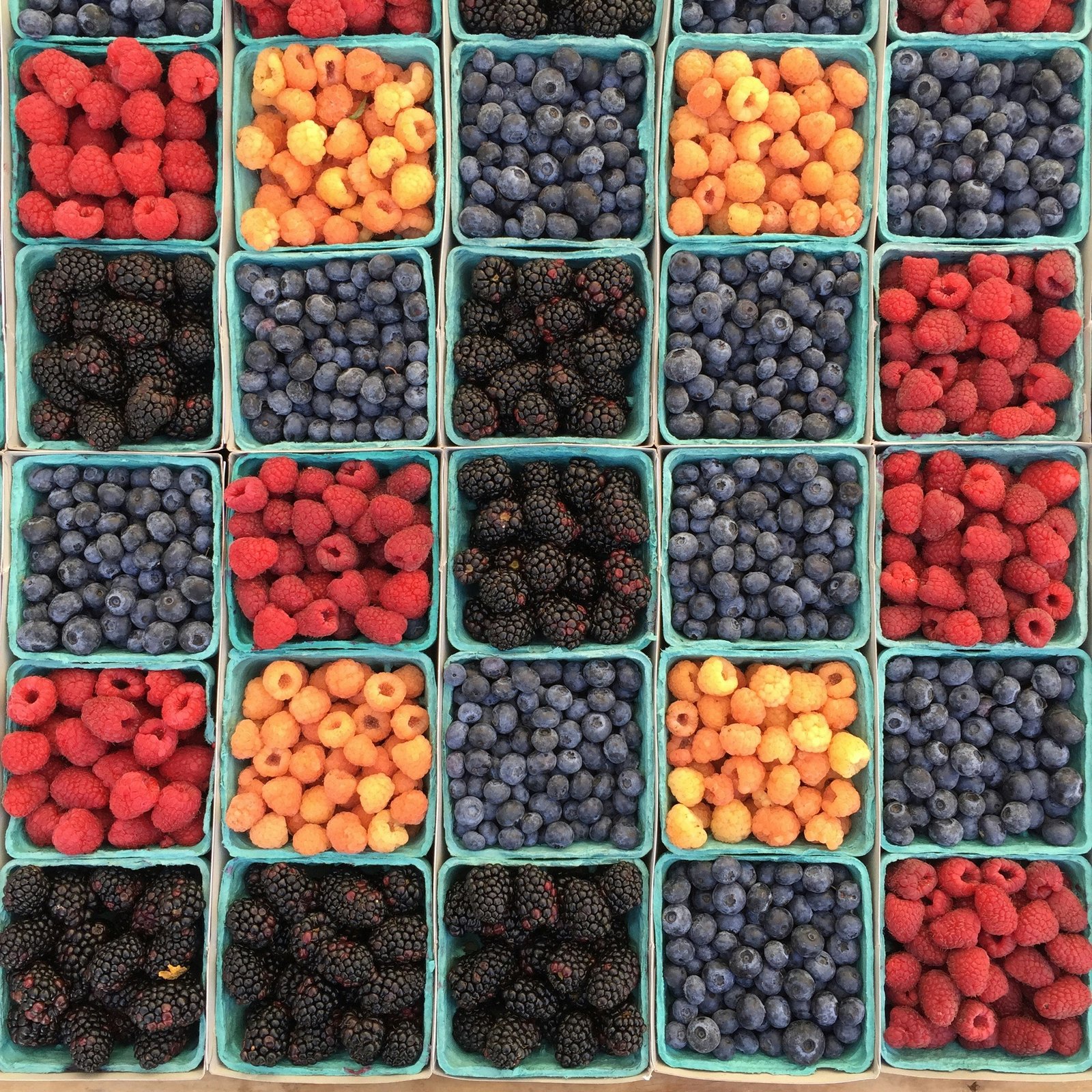Understanding the Microbiome
The microbiome refers to the diverse community of microorganisms, including bacteria, viruses, fungi, and archaea, that inhabit various parts of the human body, with the gut microbiome being the most studied. This complex ecosystem plays a crucial role in maintaining human health by influencing numerous physiological processes. The gut, home to trillions of these microorganisms, provides a unique environment where these organisms coexist and interact with the human host.
One of the primary functions of the gut microbiome is aiding in digestion. The microorganisms present in the gut help break down complex carbohydrates and fibers that the human body cannot digest on its own. This process not only improves nutrient absorption but also produces short-chain fatty acids—byproducts that have beneficial effects on gut health and overall wellness. Additionally, gut flora diversity is pivotal in the development and functioning of the immune system. A balanced microbiome helps the body differentiate between harmful pathogens and beneficial microbes, leading to a more effective immune response.
Furthermore, recent studies suggest a profound connection between gut health and mental well-being, often referred to as the “gut-brain axis.” The gut microorganisms produce neurotransmitters, including serotonin, which can influence mood and cognitive functions. Consequently, a diverse and balanced microbiome is vital for both physical and mental health, underscoring its importance in the broader context of human health.
Ultimately, understanding the microbiome and its function highlights the significance of a microbiome-friendly lifestyle, particularly through dietary choices that promote the health of these microorganisms. With growing awareness of the microbiome’s role, individuals can make informed decisions to support their gut health and, in turn, enhance their overall well-being.
The Importance of Gut Flora Diversity
Gut flora diversity is paramount for maintaining overall health and well-being. The human gastrointestinal tract is home to trillions of microorganisms, collectively known as the gut microbiota. This diverse community of bacteria, viruses, fungi, and other microbes plays a crucial role in numerous physiological functions. Research has shown that a varied gut flora enhances the immune system’s efficacy by promoting a balanced inflammatory response, thereby reducing the risk of infections and autoimmune diseases.
Moreover, gut flora diversity is instrumental in the absorption of nutrients. Diverse microorganisms facilitate the breakdown of complex carbohydrates, proteins, and fats, which makes nutrients more bioavailable to the host. This capability impacts energy balance and may influence body weight management. Studies have indicated that individuals with a rich microbiome are less likely to experience obesity-related issues, as their guts are better equipped to extract energy from food and regulate metabolic processes.
The influence of gut microbiota extends beyond physical health; it also plays a significant role in mental well-being. The gut-brain axis is a bi-directional communication network linking the gut and the brain, where neurotransmitters produced by gut bacteria can affect mood and cognitive functions. For instance, a diverse gut flora has been associated with lower levels of anxiety and depression, highlighting the profound connection between microbiome health and mental health outcomes.
Conversely, reduced gut flora diversity has been associated with various health risks, including gastrointestinal disorders, inflammatory diseases, and metabolic syndromes. Such a decrease in diversity often results from poor dietary choices, antibiotic overuse, and a sedentary lifestyle, leading to an imbalance of gut bacteria. Hence, fostering gut microbiome diversity through a balanced and varied diet is vital for optimizing health and preventing chronic diseases.
Key Components of a Microbiome-Friendly Diet
Embarking on a microbiome-friendly diet entails emphasizing specific food categories that are known to enhance gut health. One of the primary components is fiber-rich foods, which play a crucial role in feeding beneficial gut bacteria. High fiber foods, such as whole grains, fruits, vegetables, and legumes, contribute to the development of a diverse microbiome. This diversity is vital for overall health, as it can influence metabolism, immune function, and even mental health. The fermentation of dietary fiber by gut bacteria produces short-chain fatty acids, which further bolster the health of the intestinal lining and can help prevent various gastrointestinal disorders.
Additionally, incorporating fermented foods into the diet is essential for fostering a robust microbiome. Fermented foods like yogurt, kefir, sauerkraut, kimchi, and kombucha are rich in probiotics, the beneficial bacteria that can enhance gut flora diversity. These foods not only introduce new strains of bacteria into the digestive system but also aid in the fermentation process that enhances nutrient absorption and overall gut health. Regular consumption of these probiotic-rich foods can help balance the gut microbiota and promote digestive efficiency.
Prebiotics also represent a fundamental aspect of a microbiome-friendly diet. These are non-digestible carbohydrates found in foods such as garlic, onions, bananas, and asparagus. Prebiotics serve as food for beneficial bacteria, facilitating their growth and activity in the gut. By enhancing the population of these advantageous bacteria, prebiotics contribute to a balanced microbiome and support healthy digestion. Collectively, fiber-rich foods, fermented options, and prebiotics create a solid foundation for a diet that nurtures the gut flora, ultimately promoting better overall health.
Fiber-Rich Foods That Promote Gut Flora Diversity
Fiber-rich foods play a crucial role in fostering a diverse microbiome, which in turn promotes overall health. Dietary fiber serves as a fuel source for beneficial gut bacteria, helping them thrive and perform essential functions like digestion and immune support. Including a variety of fruits, vegetables, and whole grains in one’s diet is an effective strategy to enhance gut flora diversity.
Fruits such as apples, bananas, and berries are excellent sources of soluble and insoluble fiber. Apples are rich in pectin, a type of soluble fiber that nourishes beneficial bacteria like Bifidobacteria. Bananas, especially when slightly green, contain resistant starch that feeds the gut microbes. Berries, including strawberries and blueberries, provide not only fiber but also antioxidants, further supporting gut health.
Vegetables also contribute significantly to fiber intake. Leafy greens such as spinach and kale are rich in fiber and are known to support the growth of various gut bacteria, including Lactobacillus. Cruciferous vegetables like broccoli and Brussels sprouts are beneficial as they contain sulforaphane, a compound that can enhance the microbiome’s diversity. Incorporating these vegetables into salads, soups, or stir-fries can be a flavorful way to boost fiber consumption.
When it comes to whole grains, options like oats, quinoa, and brown rice offer substantial health benefits due to their high fiber content. Oats are particularly rich in beta-glucan, a soluble fiber that promotes the growth of beneficial gut bacteria and assists in maintaining gut health. Quinoa, while technically a seed, is an excellent alternative to traditional grains, providing a complete protein profile along with fiber.
To effectively incorporate fiber-rich foods into the daily diet, simple changes can be made. Start by adding fruit to breakfast, such as mixing berries into smoothies or oatmeal. Opting for whole grain versions of bread and pasta can also ensure adequate fiber intake. Gradually increasing the amount of vegetables in meals, along with selecting high-fiber snacks like nuts and seeds, can further promote a diverse and healthy microbiome.
The Benefits of Fermented Foods
Fermented foods have gained considerable attention for their numerous health benefits, particularly in relation to gut health. These foods, which include yogurt, kefir, kimchi, and sauerkraut, undergo a natural fermentation process. During this process, beneficial bacteria break down sugars and starches, transforming them into acids and alcohol. This not only enhances the flavor and shelf life of the foods but also creates a rich source of probiotics, which are essential for maintaining a healthy gut flora.
Probiotics are live microorganisms that, when consumed in adequate amounts, confer health benefits on the host. Studies have shown that incorporating fermented foods into the diet can improve digestive health, boost immunity, and even support mental well-being through the gut-brain axis. Fermented foods help to replenish the gut with beneficial bacteria, which can be crucial in restoring balance if the microbiome has been disrupted by factors such as antibiotic use or an unhealthy diet.
Incorporating fermented foods into one’s daily diet can be both enjoyable and versatile. For example, starting the day with yogurt or kefir can provide a delicious base for smoothies or parfaits. For lunch or dinner, adding a serving of kimchi or sauerkraut can enhance meals with a tangy crunch, making salads, sandwiches, or grain bowls more flavorful and nutritious. Moreover, fermented beverages like kombucha also offer a refreshing option for those looking to hydrate while nourishing their gut.
To maximize the benefits of fermented foods, it is advisable to choose options that are minimally processed and contain live cultures. Quality sources will ensure that the probiotics are still active and capable of contributing positively to gut health. By embracing a variety of fermented foods, individuals can enhance their overall diet while promoting a diverse and thriving gut microbiome.
Prebiotics: The Unsung Heroes of Gut Health
Prebiotics play an essential role in promoting gut health and enhancing the diversity of gut flora. They are non-digestible food components, primarily types of dietary fiber, that serve as food for beneficial gut bacteria. This selective nourishment allows beneficial bacteria to thrive, contributing to a healthier gut environment. Research has shown that a diverse gut microbiome can improve digestion, boost immunity, and even support mental health.
Common sources of prebiotics include foods rich in inulin and oligosaccharides. For instance, garlic, onions, leeks, asparagus, bananas, and chicory root are excellent choices. These foods not only provide essential nutrients but also promote the growth of gut-friendly bacteria such as Bifidobacteria and Lactobacilli. Increasing the intake of prebiotic-rich foods can significantly enrich the gut microbiome and enhance its overall health.
Integrating prebiotics into your diet can be both simple and enjoyable. For instance, adding sliced bananas or oats to your breakfast can provide a good source of prebiotics. Snack options such as vegetables with hummus or yogurt with fruit can also serve this dual purpose. Additionally, using garlic and onions in cooking can easily boost your meal’s prebiotic content. By being mindful of your food choices and including a variety of prebiotic-rich foods, you can easily cultivate a more diverse and beneficial gut flora.
In conclusion, prebiotics are invaluable for nurturing gut health and fostering a variety of beneficial bacteria. By understanding their importance and incorporating them into daily meals, individuals can take proactive steps to improve their gut flora diversity, leading to better overall health.
Foods to Limit for a Healthy Microbiome
Maintaining a healthy microbiome is essential for overall well-being, and certain foods can adversely affect gut flora diversity. Primarily, processed foods that are high in sugar and artificial additives can lead to imbalances in the gut microbiota. These foods often contain refined carbohydrates, which can be detrimental as they promote the growth of harmful bacteria while suppressing the beneficial species that sustain a diverse microbiome.
Excessive sugar intake is particularly concerning, as it has been linked to various health issues, including obesity and diabetes. Sugar can create a hostile environment for the growth of healthy gut bacteria by feeding pathogenic species. Research indicates that high-sugar diets can lead to increased intestinal permeability, a condition often referred to as “leaky gut.” This condition can provoke inflammation and may contribute to a range of health problems. To foster gut health, it is advisable to limit sugars and pivot towards naturally occurring sugars found in fruits, which come with beneficial fiber and nutrients.
Additionally, artificial additives such as sweeteners, preservatives, and emulsifiers can also negatively influence gut flora. Some studies have shown that these substances can hinder the growth of beneficial bacteria and promote the proliferation of detrimental strains. Thus, it’s prudent to read ingredient lists and avoid products containing these artificial components. Instead, consider opting for whole, unprocessed foods, which are not only more nutritious but also supportive of gut microbial diversity.
In light of these findings, focusing on a microbiome-friendly diet entails minimizing processed foods, sugars, and artificial additives while embracing healthier alternatives like whole grains, fresh fruits, and vegetables. This shift can significantly enhance gut health and promote a more diverse and thriving gut microbiome.
Practical Tips for Transitioning to a Microbiome-Friendly Diet
Transitioning to a microbiome-friendly diet can be a transformative experience for your gut health, but it requires thoughtful planning and gradual changes to your eating habits. Begin by introducing gut-friendly foods into your meals gradually. This could mean replacing one meal a day with options rich in prebiotics and probiotics. Focus on incorporating foods such as fermented products (yogurt, kefir, sauerkraut), fiber-rich fruits and vegetables (apples, bananas, asparagus), and whole grains (quinoa, brown rice) that nourish the diverse bacteria in your gut.
Meal planning plays a crucial role in successfully adopting a microbiome-friendly diet. Set aside time each week to plan your meals around diverse ingredients. Consider creating a grocery list based on your meal plan to ensure you have microbiome-boosting foods on hand. This not only saves time but also helps you avoid the impulse to reach for processed foods. Consider batch cooking or preparing simple meals that can be varied slightly throughout the week to maintain variety while minimizing food waste.
It is also essential to acknowledge and address cravings for less healthy foods during this transition. One effective strategy is to find satisfying alternatives that are still microbiome-friendly. For instance, if you crave chips, consider baked chickpeas or air-popped popcorn with spices. Additionally, focus on mindful eating practices, such as savoring each bite, which can help reduce cravings by enhancing your overall relationship with food.
Be patient with yourself as your palate adjusts to new flavors and textures. Remember that gradual change is key to maintaining long-term success. Over time, you will likely find yourself preferring microbiome-nurturing foods, leading to improved gut health and overall well-being.
Conclusion
In our exploration of a microbiome-friendly diet, we have delved into the critical role that diverse gut flora plays in maintaining overall health and well-being. The balance and variety of microorganisms residing in our gastrointestinal tract are closely linked to numerous health aspects, including digestion, immunity, and even mental health. The foods we choose to consume significantly influence the composition of gut microbiota, making it essential to adopt dietary strategies that promote this critical diversity.
Incorporating a wide range of fiber-rich foods, such as fruits, vegetables, whole grains, legumes, nuts, and seeds, can foster a thriving microbial community. These foods provide prebiotics, which serve as nourishment for beneficial bacteria, allowing them to flourish and outcompete potentially harmful pathogens. Similarly, the inclusion of fermented foods, such as yogurt, kefir, sauerkraut, and kimchi, introduces live probiotics into the gut, further enhancing microbial diversity and promoting gut health.
Furthermore, it is essential to recognize the impact of dietary habits and lifestyle choices on gut flora. Regular exercise, adequate hydration, and a reduction in processed foods and artificial additives can create an environment conducive to the growth of diverse microorganisms. As we have noted throughout the discussion, each small change in our diet can lead to significant benefits for gut health, encouraging a resilient and varied microbiota.
By being mindful of these dietary choices, readers can take proactive steps toward a microbiome-friendly lifestyle. The long-term advantages of nurturing gut flora diversity are profound, potentially resulting in improved digestion, enhanced immune function, and reduced risk of chronic diseases. By embracing a diverse and balanced diet, individuals can pave the way for better health and vitality in the years to come.




